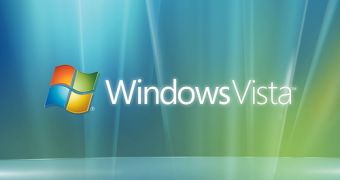Windows Vista, Microsoft's latest operating system, shipped to corporate customers in November 2006 and to the general public in January 2007. This move from the Redmond company was designed to emphasize the fact that Vista's natural ecosystem could stretch with no real issues between the home and the business environments, blurring the lines that separate customers. In fact, with Vista, Microsoft aimed to catalyze an accelerated adoption in the corporate world. Having streamlined the upgrading process for home users as much as possible, Microsoft offered extensive support for Vista migration for businesses, but the matter is largely out of the company's hands.
Software and hardware upgrades are governed by complex cycles in the corporate environments, and although Microsoft did put its back into pushing Windows Vista to businesses, the adoption of the operating system was limping to say the least. There are a number of factors correlated with the slow uptake of Vista by businesses, from the fact that migration has to be correlated with upgrades at the level of hardware infrastructure, to the proximity of Windows Vista SP1 and Windows XP SP3, along with the deep roots that XP managed to dig in from 2001 until 2007. However, this is simply the natural trend of adoption in the corporate environment and not a failure on Microsoft's behalf.
Still, traditional Microsoft partner Dell, through the voice of its Chief Executive Officer Michael Dell, is indicating new signs of support for the operating system, predicting a strong adoption of Vista throughout the next couple of years, as cited by ZDNet. According to Dell, business customers are increasingly getting ready to migrate to Windows Vista, with the vast majority planning to do so either in 2008, after the launch of Vista SP1, or in 2009. Microsoft currently plans to make Vista's successor, Windows 7 (Seven) available sometime in 2010. In this context, no business can afford to wait until 2011 in order to upgrade from Windows XP or Windows 2000.
But at the same time, Dell Chief Technology Officer Kevin Kettler was predicting, even before Vista hit the shelves, that the operating system will have an accelerated adoption rate compared to its competitors'. The evolution of Vista on the market proved Kettler wrong. And the latest statistics related to Vista uptake paint a worrisome picture for Microsoft. While Net Applications credits Vista with an overall 7.38% of the operating system market, independent surveys performed by Sunbelt, Context and Panda Security reveal that the corporate world is still very shy of Windows Vista.

 14 DAY TRIAL //
14 DAY TRIAL //